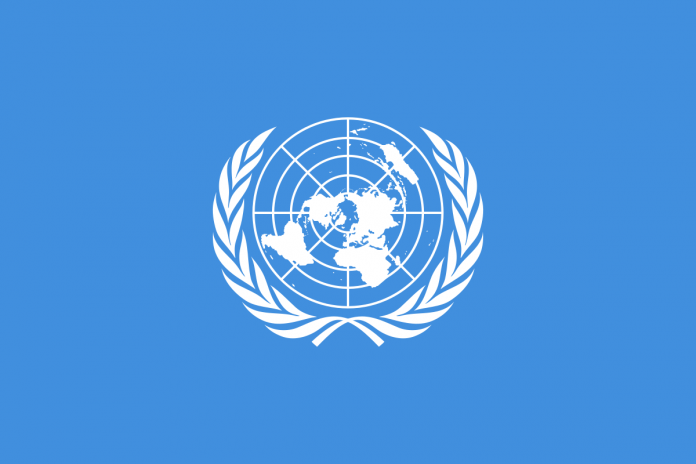This article is written by Priyal Jain, a student of Amity Law School, Noida. The purpose of this article is to explain the concept of the United Nations Human Rights Council, and other relevant aspects related to the same.
It has been published by Rachit Garg.
Table of Contents
Introduction
The Human Rights Council is an inter-governmental body, i.e. a body which exists between two or more governments of different nations, and it is one of several different organs within the United Nations (UN) for pursuing a specific given agenda. The Human Rights Council is responsible for safeguarding and protecting the human rights of the people around the globe. It has the responsibility of taking an appropriate and required course of action in situations where human rights are violated. It also addresses various problems by voicing its opinions regarding the violation of human rights around the world.
What is the United Nations Human Rights Council
The main function of the Council is to promote the idea of protecting the human rights of all the people around the globe, and to ensure the attainment of fundamental freedom by everyone, universally. The Council helps in the development of international human rights law (a body of the international law that is designed to protect human rights at all levels in the world), reviews the human rights records of member states, work to prevent abuses of human rights, respond to emergencies in cases where human rights are violated and serve as an international forum for discussion on human rights issues. Protection of women’s rights, minority rights, ethnic strife, and freedom from arbitrary arrest, also comes under the purview of this Council.
The main objectives of this Council are:
- To investigate allegations of human rights abuse in member states of the UN.
- To ensure that the below-listed human rights are guaranteed to all the people, and at the same time, it also tries to protect such guaranteed human rights.
- Freedom of assembly;
- Freedom of speech and expression;
- Freedom of religion;
- Protection of women’s rights; and
- Protection of rights of the LGBT community and that of racial and ethnic minorities.
History of the United Nations Human Rights Council

The Human Rights Council was created by the UN General Assembly on March 15, 2006, by resolution 60/251, after replacing the former 60-year-old UN Commission on Human Rights, which operated from 1946 to 2006. The former commission had become ineffective because it included the majority of the countries with a poor human rights record. The new body had its first session from June 19 to June 30, 2006. The Council adopted an ‘institution-building package’, in 2007 by resolution 5/1, to set up the Council’s procedures and mechanisms; which included the mechanisms of Universal Periodic Review (to analyse the situations of human rights in all UN member states), the Advisory Committee (to advise on the issues arising on human rights), and the Complaint Procedure (to acknowledge situations of human rights violation faced by individuals or organisations). The Council also has to work with the UN special procedures as it was established by the former Commission on human rights, and it comprises special representatives, special rapporteurs, independent experts, and working groups that monitor, examine, advise and report on the human rights issues in specific countries. The Council completed its ten years in June 2016 and celebrated the event through several events.
Working of the United Nations Human Rights Council
The United Nations Human Rights Council works closely with the Office of the High Commissioner for Human Rights (OHCHR). The Human Rights Council regularly acknowledges the issue of violation of human rights of women and girls, especially at its June session, and the Council tries to protect the human rights of such women by finding solutions to their problem of human rights abuse. UN Women, through its Liaison Office in Geneva, also w toward this issue, and they try to ensure that such issues of women around the globe are addressed in the sessions of the Council, ensuring that the Council is not overlooking the issues of women. The Council takes part in various group discussions, and other side events to highlight issues related to women’s human rights. It also supports the participation, engagement, and work of gender equality advocates, i.e., advocates who fight for the equality of women in all aspects of society. The busiest year till date in the history of the Human Rights Council was 2021, when the Council worked towards introducing new innovations, breaking the boundaries, and setting new human rights standards, under the presidency of Ambassador Nazhat S. Khan of Fiji.
In a landmark resolution 48/13, the Council recognised the human right to a clean, healthy and sustainable environment for the first time. In the 15-year history of the Council, for the first time in 2021, the Council allowed the delegates to vote remotely because of the COVID-19 situation and attracted the highest number of dignitaries ever to speak at its sessions. The Council also supported the participation of 19 delegates belonging to the least developed countries and small island developing states around the world through their respective Trust Funds. Also, for the first time, the Council held five sessions which concerned- Myanmar, the occupied Palestinian Territory and Israel, Afghanistan, Sudan, and Ethiopia. The Council also extended the mandates of 17 special procedures and investigative bodies, and created seven new mandates given below:
- An accountability project on Sri Lanka.
- A monitoring mission in Belarus.
- A commission of inquiry on the occupied Palestinian Territory, and Israel.
- A special rapporteur for Afghanistan.
- A racial justice body addressing systemic racism in law enforcement around the globe.
- A special rapporteur on climate change.
- An investigative body for Ethiopia.
The Council is continuously criticised for not performing its job with perfection because many of the rotating seats in the Council are occupied by notorious human rights abusers themselves, like Saudi Arabia, Libya, China, Cuba, Syria, and many more, who have successfully used their power to steer the Council away from protecting the human rights of people.
Membership in the United Nations Human Rights Council
On May 9, 2006, 47 countries were elected as member states of the Council, in compliance with paragraph 7 of General Assembly resolution 60/251. The distribution of seats is according to the equitable geographical representation, i.e. 13 seats are given to the group of African states and the group of Asia- Pacific states each, 6 seats are given to the group of Eastern European states, 7 seats are given to the group of Western European and other states and 8 seats are given to the group of Latin American and Caribbean states. To become a member of the Council, a country must receive the votes of at least 96 of the 191 states of the UN General Assembly, i.e. an absolute majority must be there. The UN General Assembly also takes into consideration the contribution of the candidate’s state in promoting and protecting human rights, as well as their voluntary pledges and commitments in this regard, while electing the member states. The members are elected for three years and are not eligible for immediate re-election after serving two consecutive terms. As it is said that leadership also comes with responsibility. Therefore, every member state is entrusted with the responsibility that they should themselves not be the violators of human rights. This is a criterion that was insisted on by the states themselves when they adopted resolution 60/251 in March 2006 to create the human rights Council, as countries like Saudi Arabia, China, and Cuba hold a powerful position in the Council which weakens the credibility of the Council, and as a result, people lose faith in the Council.
The UN General Assembly has the power to suspend the rights of any Council member if the Council finds any member to have been continuously committing human rights violations during its tenure. The suspension comes into effect with a 2/3rd majority by the UN General Assembly. The USA pulled out of the Council in 2018 because of its disproportionate focus on Israel. Israel is the country that has by far received the largest number of critical council resolutions against itself. Sometimes, countries like China, Cuba, Eritrea, Russia, and Venezuela, which themselves are human rights abuses, were made the members of the Council. India was elected as a member of the Council on January 1, 2019. By December 31, 2022, 123 UN member states will have served as human rights council members, which reflects the diversity of the United Nations and gives the Council legitimacy when speaking out on human rights violations across the globe.
Leadership of the United Nations Human Rights Council
The Council consists of a five-person bureau, with one president and four vice presidents, each representing one of the five regional groups. Each of them serves for a year, according to the Council’s annual cycle. Federico Villegas, who is the permanent representative of Argentina in the UN, was elected as the President of the Council for the 16th cycle (2022), in December 2021. The Office of the High Commissioner for Human Rights is the secretariat of the Council, which is headquartered in Geneva, Switzerland.
Meeting of the United Nations Human Rights Council
The Council meets three times every year, and the three sessions are held in March (for four weeks), June (for three weeks), and September (for three weeks). All the three sessions together make up for a total of 10 weeks or more. The sessions are held at the United Nations office in Geneva, Switzerland, where the issues and situations of human rights violations that need the attention of the Council are discussed thoroughly. The Council also has the power to conduct urgent meetings at the request of any Council member with the support of one-third of the total Council membership on short notice to respond to any emergency on human rights crises. As of May 2022, 34 special sessions have been held. The last special session, of May 2022, was held on May 12, 2022, to discuss the human rights violation in Ukraine because of aggression shown by Russia.
Member countries of the UN Human Rights Council
The 15 countries mentioned below were elected by the UN General Assembly as members of the UN Human Rights Council in January 2021, for three years.
- Bolivia
- China
- Côte d’Ivoire
- Cuba
- France
- Gabon
- Malawi
- Mexico
- Nepal
- Pakistan
- Russian Federation
- Senegal
- Ukraine
- United Kingdom
- Uzbekistan
Conclusion
The idea of establishing the United Nations Human Rights Council is great as in today’s world where many countries are violating the basic rights of their citizens, this Council could be their saviour. The Council needs to work effectively to improve its drawbacks to reach its full potential. The Council needs to remove all the member states who themselves are human rights abuses and work towards securing human rights for all the individuals and organisations around the globe, as the basic human rights of everyone must be protected at any cost.
Frequently Asked Questions (FAQs)
- Will NGOs and other observers participate in the proceedings of the Council as they did with the Commission on Human Rights?
Yes, they will actively participate in the Council, along with specialised agencies, inter-governmental organisations, and national human rights institutions, through the same arrangements and practices that applied to the Commission.
- Can a member have their rights and privileges suspended in the Council?
Yes, the General Assembly has the right to suspend the rights and privileges of any Council member that it considers, is persistently committing gross and systematic violations of human rights during its term of membership. This process of suspension requires a two-thirds majority vote by the General Assembly. - Is Russia suspended from the United Nations Human Rights Council, and if yes, then why?
Yes, the United Nations on April 8, 2022, suspended Russia from the Council for the systematic violation by Russian troops in Ukraine.
- When is the human rights day observed every year?
On December 10
- Who is Ajai Malhotra?
He is the chairperson of the Advisory Committee of the United Nations Human Rights Council, Geneva, and is the first Indian to hold this post.
References
- https://indianexpress.com/article/explained/everyday-explainers/what-is-united-nations-human-rights-council-7857963/
- https://www.ohchr.org/en/about-us/brief-history-un-human-rights
- https://www.jewishvirtuallibrary.org/history-and-overview-of-the-un-human-rights-council
- https://ijrcenter.org/un-human-rights-council/
- https://www2.ohchr.org/english/press/hrc/kit/qa.pdf
- https://www.unwomen.org/en/how-we-work/intergovernmental-support/human-rights-council
- https://www.universal-rights.org/human-rights-rough-guides/a-rough-guide-to-the-human-rights-council/
- https://www.drishtiias.com/daily-news-editorials/the-relevance-of-unhrc
- https://www.un.org/en/our-work/protect-human-rights
- https://www.universal-rights.org/blog/reforming-un-human-rights-council-call-new-leadership/
- https://library.fes.de/pdf-files/iez/global/09680.pdf
Students of Lawsikho courses regularly produce writing assignments and work on practical exercises as a part of their coursework and develop themselves in real-life practical skills.
LawSikho has created a telegram group for exchanging legal knowledge, referrals, and various opportunities. You can click on this link and join:
Follow us on Instagram and subscribe to our YouTube channel for more amazing legal content.
 Serato DJ Crack 2025Serato DJ PRO Crack
Serato DJ Crack 2025Serato DJ PRO Crack










 Allow notifications
Allow notifications


